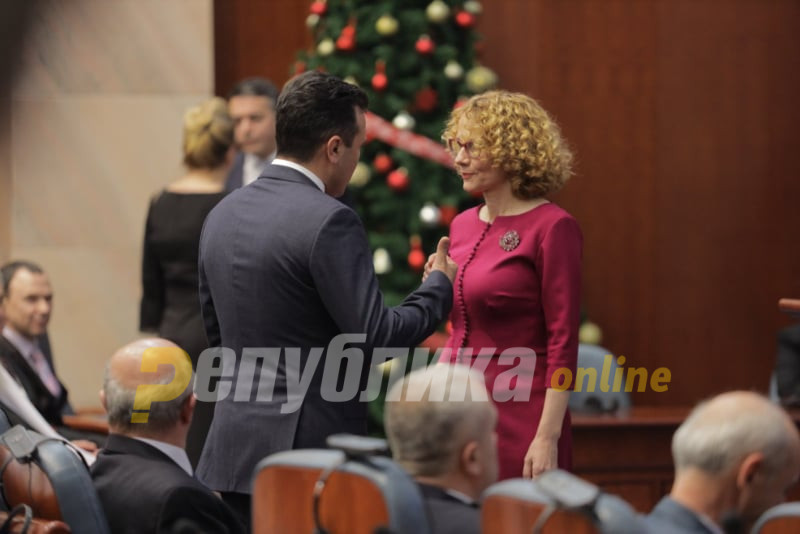Polls show that the now ruling SDSM party is well on the way to marking 20 years without winning general elections. The party won its last election in 2002, in the aftermath of the 2001 civil war and the wiretapping scandal that likely provoked it.
Since then, it’s been all downhill for the left, losing election after election, sometimes with a margin that allowed its chief opponent, the conservative VMRO-DPMNE party, to win over 61 seats, allowing it to dictate terms to its ethnic Albanian coalition partners.
SDSM is only in Government today owing to international pressure on the Albanian parties to shun VMRO after the 2016 elections. SDSM lost those elections to VMRO, but SDSM was willing to accept the Tirana Platform of major concessions toward the ethnic Albanian parties, and it was one of the Macedonian national interests sacrificed so that Zaev would form the first SDSM led Government since 2006.
All the polls (minus one outlier) show SDSM again trailing VMRO-DPMNE. The margin grows into a chasm when ethnic Macedonians are asked who do they support, and Zaev is reduced to hoping for a major Albanian turnout in his favor to narrow the losing margin.
Both Zaev and his deputy in the party, Radmila Sekerinska, led SDSM in disastrous elections against VMRO. Sekerinska was at the helm of the party in 2008, when VMRO won 63 seats in the early general elections, against her 27, and twice as many votes as SDSM did. Zaev fared little better. In the 2014 early elections he won 34 seats to 61 for VMRO.
Despite the state capture, and the widespread use of the police and the judiciary to support his side and attack the opposition, Zaev’s SDSM is now down in the polls to VMRO. The elections are scheduled at a time when SDSM is engulfed in major corruption scandals, daily national humiliations which result from the treaties signed with Greece and Bulgaria, and the refusal of the European Union to allow Macedonia to open accession talks – which ultimately sparked the early elections. Zaev is now trying to drop the agreement, and postpone the elections, citing various reasons such as the delayed ratification of Macedonia’s NATO membership, or the fact that a series of bills he hopes would buy him enough votes are stalled in the Parliament. Talks between the parties on whether the elections will take place as planned are expected on Saturday.




Comments are closed for this post.